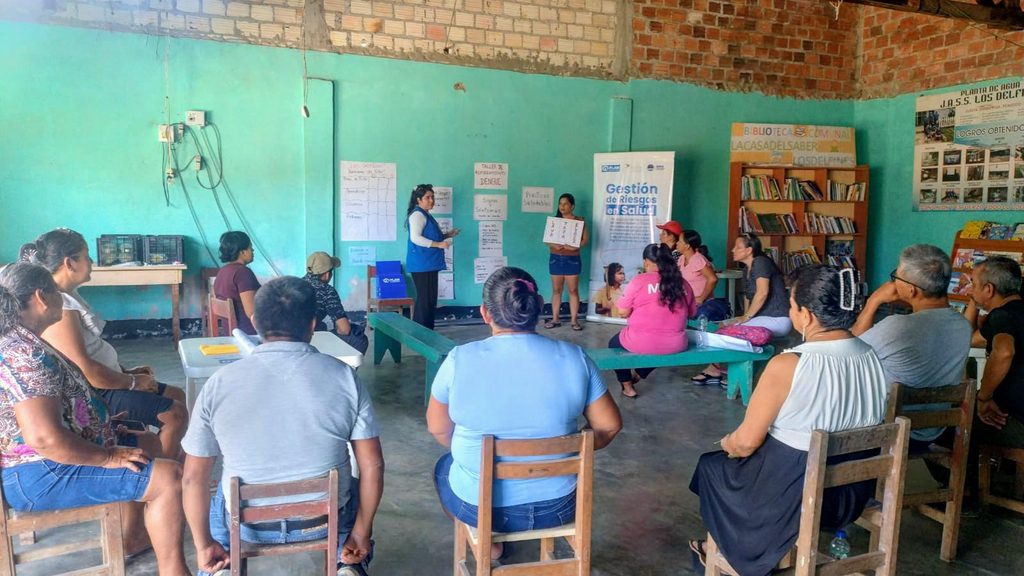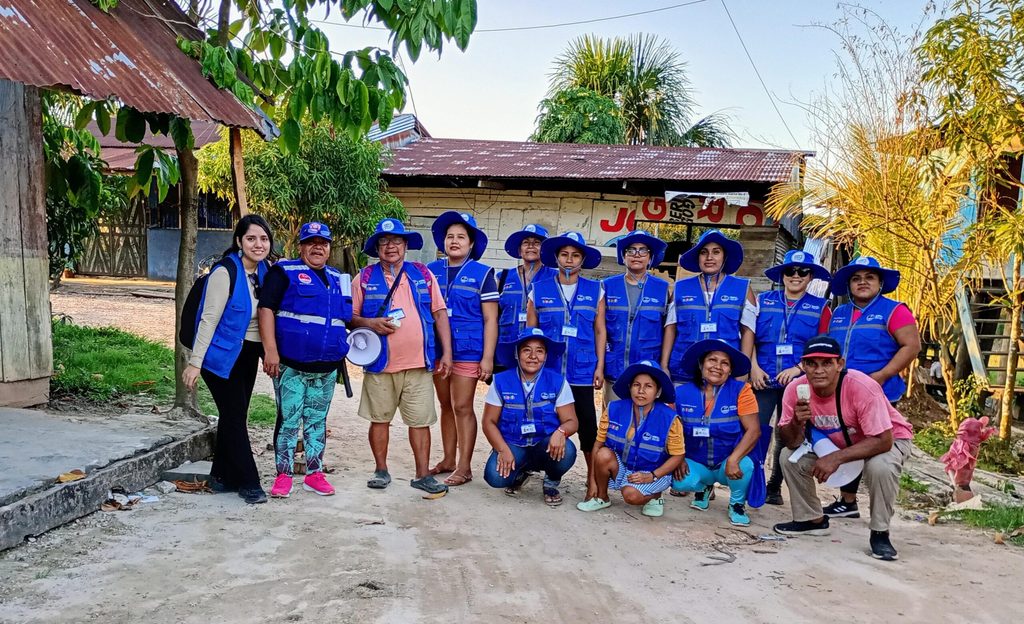Health risks rise when survival takes priority
19 August 2025From carrying out door-to-door campaigns to leading community health initiatives, women in Loreto are shaping safer futures. Roxana, a project facilitator with Plan International, shares the stories and spirit behind the humanitarian response to growing health risks.

By Roxana Medina Reátegui, Project Facilitator, Plan International Peru
People say: “Our house is all we have.” Even when it’s in a flood-prone area, they hold onto the idea of their home. That’s something I’ve heard time and again while working with communities in Loreto, and it stays with me, because it captures so much of what I see on the ground.
My name is Roxana Medina Reátegui, and I’m a project facilitator for Plan International’s Health Risk Management project in the Loreto region of Peru. Before this role, I was a volunteer raising awareness around malaria, dengue, and zika, going door to door in both urban and rural areas with flipcharts, speaking to children and adults alike. I joined clean-up and awareness campaigns in communities like Barrio Florido, Tamshiyacu, and Belén Bajo, and I’ve worked on health promotion efforts and census projects alongside local students and adolescents.
Through this, I came to understand the deep needs in these communities, many of which are flooded and contaminated by dirty water, and just how much families face to get through each day. People manage to live from fishing, harvesting, or planting in conditions that are far from ideal, and yet, despite the challenges, they carry on with such resilience.

Increasing spread of disease
Right now, the Health Risk Management project is focusing on helping health centres and communities prepare for the increasing spread of diseases like malaria, dengue, and leptospirosis. These threats grow more serious each year, especially during the rainy season when flooding is widespread in the Amazon region. The communities I work with face so many challenges. Environmental pollution affects both their health and their income. Many families depend solely on the father’s work, while mothers often care for the home and children, neglecting their own health in the process. Because cleaning the home and surroundings isn’t always seen as a priority, the risks of disease can go unnoticed until it’s too late.
People also speak of a lack of support from authorities, and how the risks keep growing without enough action being taken. Many don’t feel equipped to take preventative steps, and they don’t have the resources to make changes. For them, getting food and earning money come first.
What concerns me most is that families often don’t see the link between health and hygiene. They know they want their children to be healthy, but they don’t always connect that to the conditions they’re living in. Survival comes first, even if it increases health risks. Children in these areas play without supervision, often in unsafe or contaminated spaces. Their parents go out to work, leaving them behind in environments that are far from ideal. Many don’t have the care or protection they need to stay safe.

Women involved in emergency response
Notwithstanding, there’s one thing I’ve seen that brings me hope. Thanks to this project, women — especially young women — are becoming more involved in emergency responses. Many of them once lived with low self-esteem, sidelined by the engrained machismo of their communities. Now, they’re proudly taking on leadership roles, achieving their goals, and supporting their families. It’s beautiful to see how they’ve grown in confidence and are recognising the value of their contributions at home and beyond.
If I could ask one thing of the world, it would be this: help us support communities in ways that build on their strengths. Let’s generate ways to support communities that honour local customs and knowledge, and create income opportunities that don’t strip away cultural identity. And if I could make one change myself, it would be to deepen the understanding of what communities have: what they need, what they’ve lost, and what they could build up again. We also need to connect with the private sector to offer more holistic support, especially around food security and nutrition.
Despite the challenges, what motivates me most is hearing from families about how they live, what they need, and how they want to improve. They are willing to learn, to change, and to grow, and being part of that transformation is what keeps me inspired.

Categories: Emergencies, Sexual and reproductive health and rights


